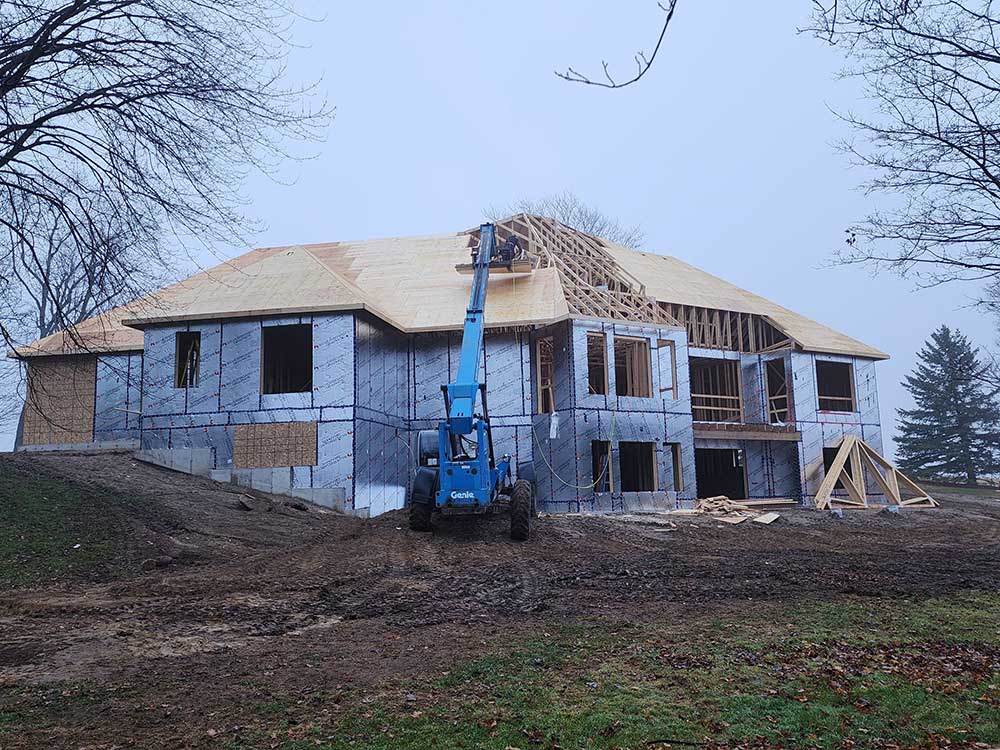When it comes to roof replacement, timing is everything. In Kitchener, the best times for a roof replacement typically fall during seasons with moderate temperatures. The key factor in timing is when there are ideal weather conditions for both the installation crew and the materials. This ensures that your new roof will be secure, and that the crew can work effectively. Keep reading to learn more about the best time for a roof replacement in Kitchener.
What is The Best Time for Roof Replacement in Kitchener?
Generally, the best time for a roof replacement in Kitchener is spring or fall.
Spring Roof Replacement
Replacing your roof in the spring means you are ensuring that your home is well-protected before the sweltering heat of summer sets in. Extreme summer temperatures can take a toll on both your roof and your home’s energy efficiency.
Fall Roof Replacement
In early fall, homeowners can take advantage of the milder weather and avoid downpours that are common in late fall. With less risk of precipitation and cooler temperatures, this time is often ideal for roofing contractors to work efficiently and effectively. No extreme heat or cold also means the roofing materials used are unaffected.
Take advantage of the spring season now…get started with a free roof inspection from Quality Care Roofing!
It’s currently May in Kitchener-Waterloo, which means there’s no time better than the present to assess your roofing needs. Even if you haven’t noticed any issues, a quick professional inspection can help find any hidden defects before they become big, costly summer roofing problems.
We offer all Kitchener-Waterloo homeowners a roof inspection free of charge!
What are Bad Times for a Roof Replacement?
For Kitchener-Waterloo homeowners, the most difficult time for a roof replacement is during the winter or summer.
Winter Roof Replacement
Winter is the least popular season for a roofing project. While roofing contractors are more available than ever, winter brings unique challenges when it comes to a roof replacement. Snow and ice accumulation will often cause the roof’s surface to be slippery, making it difficult for the roofing professionals to do their job safely.
As a result, weather-related delays are common during the winter months. You may end up waiting longer for your roof replacement project to start than you originally planned, especially if there is heavy snow or freezing temperatures. Working in extremely cold conditions could also cause the roofing materials used to crack and have trouble sealing.
Getting winter roofing work makes the most sense for emergency repairs and issues that need to be resolved as soon as possible.
Summer Roof Replacement
Despite the temperature problems that come with a summer roofing project, summer is still one of the most popular seasons for residential roofing work. This may make contractor availability an issue, in addition to price rises during the peak season. Additionally, asphalt shingles can be affected by high heat during installation, causing the shingles to soften, warp, and lose granules. Contractors need to be careful about installation, as the softening of roofing materials from the heat might cause shingles to be installed incorrectly.

